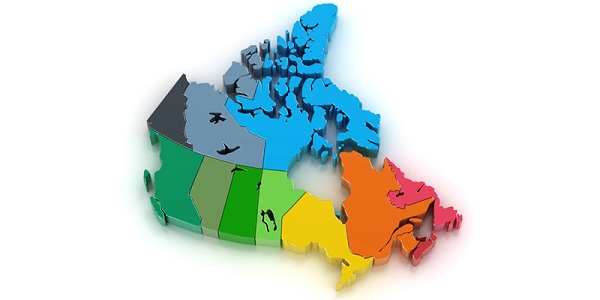News
Red Deer’s Recommended 2017 Capital Budget Released
By Sheldon Spackman
“Planning for Sustainability, People and Infrastructure”. That’s the theme of the 2017 Capital Budget and Ten Year Capital Plan for the City of Red Deer. The recommended budget and correlating plan were released on Wednesday, with City Council to review it in detail starting November 22nd.
Council will consider a proposed Capital Budget of nearly $107 million dollars for 2017, with the focus over the next few years being on preparing for the 2019 Canada Winter Games in Red Deer. Proposed major Capital projects for 2017 include water utility infrastructure replacement and rehabilitation and future growth planning of the North Red Deer Regional Water Services Commission Supply Line project, totaling nearly $15 million dollars. Roadway reconstruction, pavement rehabilitation, crown paving and future growth planning for Ross Street expansion from 20th avenue to 10th avenue, totaling nearly $15 million is also being considered, as are improvements to the Taylor Drive intersection. Some fleet replacement for Red Deer Transit to the tune of $3.4 million dollars is also being proposed.
Other proposed Capital projects for 2017 include the Riverwalk Phase 2 and Plaza for over $2 million dollars. It’s planning and visioning stage is nearing completion, so the project will now focus on marketing, land sales, economic development, construction of amenities and further site development. A new playground is also being proposed for Mattie McCullough elementary school next year. It’s a $500,000 price tag and would be funded by the Rotary Club.
Last year, Council approved in principal the 2017-2025 Capital Plan that projected an over $128 million dollar budget for 2017 but some projects have now been moved out of the Ten Year Capital Plan to realign with the current economic conditions in Red Deer. Those projects moved to the 11-20 year Capital Plan include more dry space for the Collicut Centre, (with that need to be partially accommodated by the field house in the new St. Joseph’s High School), a Performing Arts Centre and Concert Hall, another Collicut Centre, (with that need to be addressed by the new North Red Deer Community Centre which will see construction start next spring) and a new larger outdoor concert site. These moves bring the proposed 2017 Capital Budget down to the current $107 million dollar budget. City officials say this will still maintain the amenities and infrastructure Red Deer has in place, while dealing with reduced growth and development in the economy.
Red Deer’s Capital plan for 2018-2026 currently totals $1.27 billion dollars, with transportation and the 2019 Canada Winter Games being key drivers of that document. However, projects in that plan mean city council is simply considering it, planning for it and considering financing options for it.
Longer-term capital projects include trail upgrades to River Bend Recreation Area, the site of Cross Country Skiing and Biathlon events for the 2019 games, enhancements to Great Chief Park which will house a future long-track speed skating oval and turf on the new football field. Renovations to Canyon Ski Resort, the home of free-style skiing and snowboarding events for the 2019 games. Also the Gary W. Harris Canada Games Centre already under construction at RDC. Other highlights include a new Multi-Use Aquatic Centre which could see design begin in 2019 and construction start in 2021 and expansion of the ice surface at the GH Dawe Centre with a twin rink to be added and an outdoor spray park at the facility as well. Construction for those proposed projects would start in 2024.
Members of the public can now review the proposed 2017 Capital Budget and provide feedback to council before they consider it. The feedback submission deadline is November 16th. Check it out at:
http://reddeer.ca/city-government/budget-and-annual-financial-reports/
(Photo courtesy of the City of Red Deer)
Business
Broken ‘equalization’ program bad for all provinces

From the Fraser Institute
By Alex Whalen and Tegan Hill
Back in the summer at a meeting in Halifax, several provincial premiers discussed a lawsuit meant to force the federal government to make changes to Canada’s equalization program. The suit—filed by Newfoundland and Labrador and backed by British Columbia, Saskatchewan and Alberta—effectively argues that the current formula isn’t fair. But while the question of “fairness” can be subjective, its clear the equalization program is broken.
In theory, the program equalizes the ability of provinces to deliver reasonably comparable services at a reasonably comparable level of taxation. Any province’s ability to pay is based on its “fiscal capacity”—that is, its ability to raise revenue.
This year, equalization payments will total a projected $25.3 billion with all provinces except B.C., Alberta and Saskatchewan to receive some money. Whether due to higher incomes, higher employment or other factors, these three provinces have a greater ability to collect government revenue so they will not receive equalization.
However, contrary to the intent of the program, as recently as 2021, equalization program costs increased despite a decline in the fiscal capacity of oil-producing provinces such as Alberta, Saskatchewan, and Newfoundland and Labrador. In other words, the fiscal capacity gap among provinces was shrinking, yet recipient provinces still received a larger equalization payment.
Why? Because a “fixed-growth rule,” introduced by the Harper government in 2009, ensures that payments grow roughly in line with the economy—even if the gap between richer and poorer provinces shrinks. The result? Total equalization payments (before adjusting for inflation) increased by 19 per cent between 2015/16 and 2020/21 despite the gap in fiscal capacities between provinces shrinking during this time.
Moreover, the structure of the equalization program is also causing problems, even for recipient provinces, because it generates strong disincentives to natural resource development and the resulting economic growth because the program “claws back” equalization dollars when provinces raise revenue from natural resource development. Despite some changes to reduce this problem, one study estimated that a recipient province wishing to increase its natural resource revenues by a modest 10 per cent could face up to a 97 per cent claw back in equalization payments.
Put simply, provinces that generally do not receive equalization such as Alberta, B.C. and Saskatchewan have been punished for developing their resources, whereas recipient provinces such as Quebec and in the Maritimes have been rewarded for not developing theirs.
Finally, the current program design also encourages recipient provinces to maintain high personal and business income tax rates. While higher tax rates can reduce the incentive to work, invest and be productive, they also raise the national standard average tax rate, which is used in the equalization allocation formula. Therefore, provinces are incentivized to maintain high and economically damaging tax rates to maximize equalization payments.
Unless premiers push for reforms that will improve economic incentives and contain program costs, all provinces—recipient and non-recipient—will suffer the consequences.
Authors:
National
Liberals, NDP admit closed-door meetings took place in attempt to delay Canada’s next election

From LifeSiteNews
Pushing back the date would preserve the pensions of some of the MPs who could be voted out of office in October 2025.
Aides to the cabinet of Prime Minister Justin Trudeau confirmed that MPs from the Liberal and New Democratic Party (NDP) did indeed hold closed-door “briefings” to rewrite Canada’s elections laws so that they could push back the date of the next election.
The closed-door talks between the NDP and Liberals confirmed the aides included a revision that would guarantee some of its 28 MPs, including three of Trudeau’s cabinet members, would get a pension.
Allen Sutherland, who serves as the assistant cabinet secretary, testified before the House of Commons affairs committee that the changes to the Elections Act were discussed in the meetings.
“We attended a meeting where the substance of that proposal was discussed,” he said, adding that his “understanding is the briefing was primarily oral.”
According to Sutherland, as reported by Blacklock’s Reporter, it was only NDP and Liberal MPs who attended the secret meetings regarding changes to Canada’s Elections Act via Bill C-65, An Act to Amend the Canada Elections Act before the bill was introduced in March.
As reported by LifeSiteNews before, the Liberals were hoping to delay the 2025 federal election by a few days in what many see as a stunt to secure pensions for MPs who are projected to lose their seats. Approximately 80 MPs would qualify for pensions should they sit as MPs until at least October 27, 2025, which is the newly proposed election date. The election date is currently set for October 20, 2025.
Sutherland noted when asked by Conservative MP Luc Berthold that he recalled little from the meetings, but he did confirm he attended “two meetings of that kind.”
“Didn’t you find it unusual that a discussion about amending the Elections Act included only two political parties and excluded the others?” Berthold asked.
Sutherland responded, “It’s important to understand what my role was in those meetings which was simply to provide background information.”
Berthold then asked, “You nevertheless suggested amendments to the legislation including a change of dates?”
“My role was to provide information,” replied Sutherland, who added he could not provide the exact dates of the meetings.
MPs must serve at least six years to qualify for a pension that pays $77,900 a year. Should an election be called today, many MPs would fall short of reaching the six years, hence Bill C-65 was introduced by the Liberals and NDP.
The Liberals have claimed that pushing back the next election date is not over pensions but due to “trying to observe religious holidays,” as noted by Liberal MP Mark Gerretsen.
“Conservatives voted against this bill,” Berthold said, as they are “confident of winning re-election. We don’t need this change.”
Trudeau’s popularity is at a all-time low, but he has refused to step down as PM, call an early election, or even step aside as Liberal Party leader.
As for the amendments to elections laws, they come after months of polling in favour of the Conservative Party under the leadership of Pierre Poilievre.
A recent poll found that 70 percent of Canadians believe the country is “broken” as Trudeau focuses on less critical issues. Similarly, in January, most Canadians reported that they are worse off financially since Trudeau took office.
Additionally, a January poll showed that 46 percent of Canadians expressed a desire for the federal election to take place sooner rather than the latest mandated date in the fall of 2025.
-

 ESG2 days ago
ESG2 days agoCan’t afford Rent? Groceries for your kids? Trudeau says suck it up and pay the tax!
-

 John Stossel2 days ago
John Stossel2 days agoGreen Energy Needs Minerals, Yet America Blocks New Mines
-

 Daily Caller2 days ago
Daily Caller2 days agoLos Angeles Passes ‘Sanctuary City’ Ordinance In Wake Of Trump’s Deportation Plan
-

 Alberta2 days ago
Alberta2 days agoProvince considering new Red Deer River reservoir east of Red Deer
-

 Addictions2 days ago
Addictions2 days agoBC Addictions Expert Questions Ties Between Safer Supply Advocates and For-Profit Companies
-

 Aristotle Foundation2 days ago
Aristotle Foundation2 days agoToronto cancels history, again: The irony and injustice of renaming Yonge-Dundas Square to Sankofa Square
-

 Business20 hours ago
Business20 hours agoCBC’s business model is trapped in a very dark place
-

 conflict1 day ago
conflict1 day agoUS and UK authorize missile strikes into Russia, but are we really in danger of World War III?






